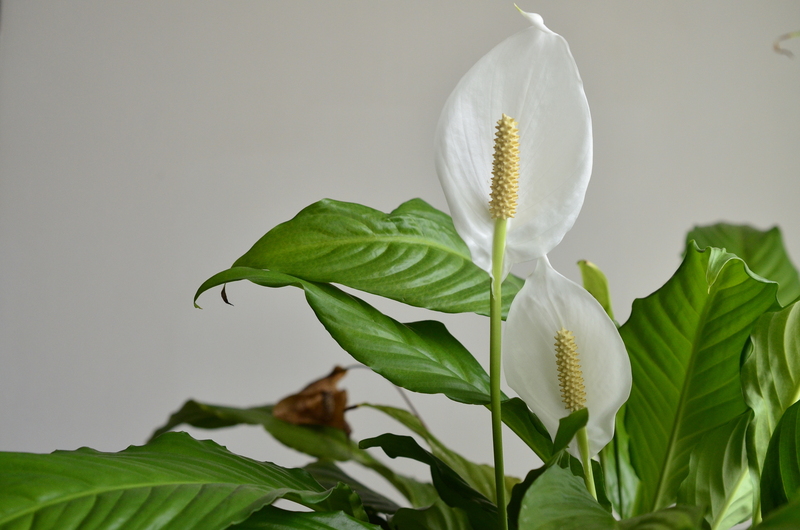Transforming Organic Waste into Fertile Soil Treasures
Posted on 04/07/2025
Have you ever wondered what happens to your kitchen scraps, fruit peels, and garden clippings after they hit the trash? Every year, millions of tons of organic waste are sent to landfills, but transforming organic waste into fertile soil treasures is an eco-friendly, resourceful way to nurture the earth and grow nutrient-rich gardens. In this comprehensive guide, we'll explore the fascinating journey of food and yard waste as it's converted into rich, black gold for your plants--benefitting both you and the planet.
Understanding Organic Waste: What Is It, and Why Does It Matter?
Organic waste refers to biodegradable materials derived from living organisms, including food scraps, paper, grass clippings, leaves, and other plant or animal-based products. These seemingly insignificant leftovers are a hidden treasure trove for those interested in sustainable living.
- Kitchen scraps (fruit and vegetable peelings, coffee grounds, eggshells)
- Garden waste (lawn trimmings, dead leaves, old potting soil)
- Paper products (unbleached paper towels, napkins, cardboard)
- Animal waste (manure from herbivores like rabbits or chickens)
By turning organic waste into fertile soil treasures, we not only divert waste from overflowing landfills but also improve soil quality, reduce greenhouse gas emissions, and foster a more sustainable environment for all.
The Problem with "Throwing Away" Organic Waste
When left in landfills, organic materials decompose anaerobically--that is, without oxygen--producing methane, a greenhouse gas many times more potent than carbon dioxide. By choosing to reimagine this "waste" as a resource for soil fertility, we're actively participating in climate action and sustainable food production.

The Science Behind Transforming Organic Waste
The secret sauce to transforming kitchen and garden debris into fertile soil treasures is composting and other soil-building techniques. Let's break down the process:
How Composting Works
- Microorganisms like bacteria and fungi consume organic matter, breaking it down into simpler compounds.
- Aeration and moisture help microbes decompose materials efficiently, generating heat and speeding up the process.
- After several weeks or months, the result is humus: nutrient-rich, dark, crumbly organic matter that's perfect for garden beds and potted plants.
Compost enhances soil structure, increases nutrient content, retains moisture, and helps suppress plant diseases. It is truly a natural treasure created from everyday waste!
Transforming Organic Waste: Practical Methods
There are several effective ways to convert food scraps and yard debris into nourishing soil amendments. Here are the most popular and accessible techniques for both urban and rural dwellers:
1. Backyard Composting
- Pile Method: Create a heap of organic waste in a corner of your yard, alternating "greens" (nitrogen-rich materials) and "browns" (carbon-rich materials) for balance.
- Tumbler Bins: These enclosed containers make turning and aerating your compost much easier, speeding up decomposition and keeping pests away.
*Key tip: Chop larger items and keep your compost moist but not soggy. Regularly turning the pile will speed up the transformation process.
2. Vermicomposting (Worm Composting)
Harnessing the power of red wiggler worms, this method excels in small spaces like apartments or balconies. Worms eat raw organic matter and excrete castings--incredibly fertile organic fertilizer.
- Easy setup: Use a simple plastic bin, moist bedding, and kitchen scraps.
- Benefits: Quick transformation, odor-free, and suitable for urban gardeners.
3. Bokashi Fermentation
4. Municipal and Community Composting Programs
Many cities offer green bin programs or public composting sites. Residents deposit food and yard waste, which is then processed into rich compost benefiting local parks or farms. This is perfect for households without garden space.
The Benefits of Transforming Organic Waste into Soil Treasures
- Improving Soil Fertility: Regularly adding compost recharges soils with essential nutrients, stimulating strong, healthy plant growth.
- Enhancing Soil Structure: Well-composted soil is looser, retains more water, and supports better root development.
- Reducing Pollution: Diverting organic matter from landfills cuts methane production and reduces the need for synthetic fertilizers.
- Encouraging Biodiversity: Composting nurtures earthworms, beneficial insects, and microorganisms that contribute to a vibrant, resilient ecosystem.
- Cost Savings: Homemade compost reduces fertilizer and soil amendment costs, making your garden more sustainable and affordable.
Why Soil Needs Organic Matter
Healthy, living soil is not just a medium to prop up plants. It's a complex, interactive ecosystem bustling with life--from earthworms and microbes down to the tiniest protozoa. Organic matter feeds these organisms, keeps soil loose and airy, and allows roots to access water and nutrients efficiently.
Step-by-Step: Transforming Organic Kitchen Waste into Garden Gold
Step 1: Collect Kitchen Scraps
- Designate a covered container or pail for fruit & vegetable peelings, coffee grounds, eggshells, and stale bread.
- Do not include meat, dairy, or oily foods in most compost bins.
Step 2: Balance Greens and Browns
- Greens: Fresh clippings, fruit and vegetable scraps, tea bags.
- Browns: Dry leaves, shredded paper, cardboard, sawdust.
- The ideal ratio is about 2:1 browns to greens for good aeration and decomposition.
Step 3: Layer, Moisten, and Turn
- Alternate green and brown layers in your compost pile or bin.
- Moisten but don't soak each layer.
- Turn the pile every week or two to oxygenate and mix materials.
Step 4: Harvest Your Fertile Soil Treasure
- Finished compost is dark, crumbly, and earthy-smelling, with no visible food scraps.
- Apply generously to garden beds, potted plants, and lawns.
Your kitchen leftovers have now become a powerful force for healthy, thriving plants!
Common Mistakes in Home Composting (And How to Avoid Them)
- Too Wet or Too Dry: Compost should feel like a wrung-out sponge. Add dry browns if it's soggy, or sprinkle water if it's dry.
- Lack of Air: Foul odors are a sign of poor aeration. Turn your pile frequently.
- Adding the Wrong Materials: Avoid glossy paper, plastic, large branches, pet waste, and weeds gone to seed.
- Forgetting to Mix: Layering is good, but occasional mixing ensures faster, more even decomposition.
Advanced Techniques: Turning More Waste into More Value
Biochar Enrichment
Adding biochar (charcoal produced from plant matter) to compost increases nutrient retention, promotes beneficial microbial life, and traps carbon in the soil. It's an ancient method now experiencing a renaissance in regenerative agriculture.
Compost Tea
Soak a handful of finished compost in water, stir, and use the "tea" as a liquid fertilizer to boost plant growth and stave off diseases.
Mulching with Organic Waste
- Shredded leaves and grass clippings make superb mulch, conserving soil moisture and adding nutrients as they break down.
- Tip: Layer mulch thickly around plants but keep it away from direct contact with stems or trunks to prevent rot.
From Trash to Treasure: The Environmental and Economic Impact
Globally, only a fraction of organic waste is recycled. If every household started transforming organic waste into soil enrichment, we could dramatically reduce our landfill burden, cut emissions, and restore vital soils worldwide.
- Environmental Impact: Strong reductions in landfill methane and transportation costs.
- Local Food Security: More compost means healthier crops and fresher, more nutritious produce.
- Community Resilience: Shared composting projects bring neighbors together and teach new generations about sustainability.

Frequently Asked Questions: Transforming Organic Waste into Fertile Soil Treasures
What should I avoid composting?
* Meat, dairy, oily foods, large sticks, diseased plants, synthetic chemicals, and pet feces (from cats and dogs). These can attract pests or spread pathogens.
Can I compost in a small apartment?
Yes! Vermicomposting and Bokashi systems are tailored for indoor, small-space composting and work year-round.
How long does composting take?
Depending on the method and conditions, it usually takes 2-6 months to create finished compost.
What if my compost smells bad?
Foul odors indicate imbalance (too much green, not enough air, or excess moisture). Adjust accordingly, and the smell should dissipate as decomposition rebalances.
Conclusion: Empower Yourself to Transform Organic Waste into Lasting Soil Wealth
*When you transform organic waste into fertile soil treasures, you're not just reducing trash. You're creating a positive feedback loop for nature--nourishing the ground, storing carbon, and helping the planet heal.* The best part? Anyone can join this movement, whether you tend a backyard, balcony, or community plot. Start small if you must, but make the shift--you'll watch your garden thrive and know that you're making a world of difference, one peel, leaf, and scoop at a time.
Ready to turn your organic waste into tomorrow's garden bounty? Gather those scraps, find the right composting method for your lifestyle, and begin the journey of turning waste into wealth for your soil and your community!
Latest Posts
Gardening with Dogs: Tips for a Harmonious Backyard
Creating Masterpiece Gardens with Hedge Trimming Shapes and Techniques
Revitalize Your Neglected Garden: Fresh Start Ideas
Essential Gardening Tools Every Outdoor Enthusiast Should Own

